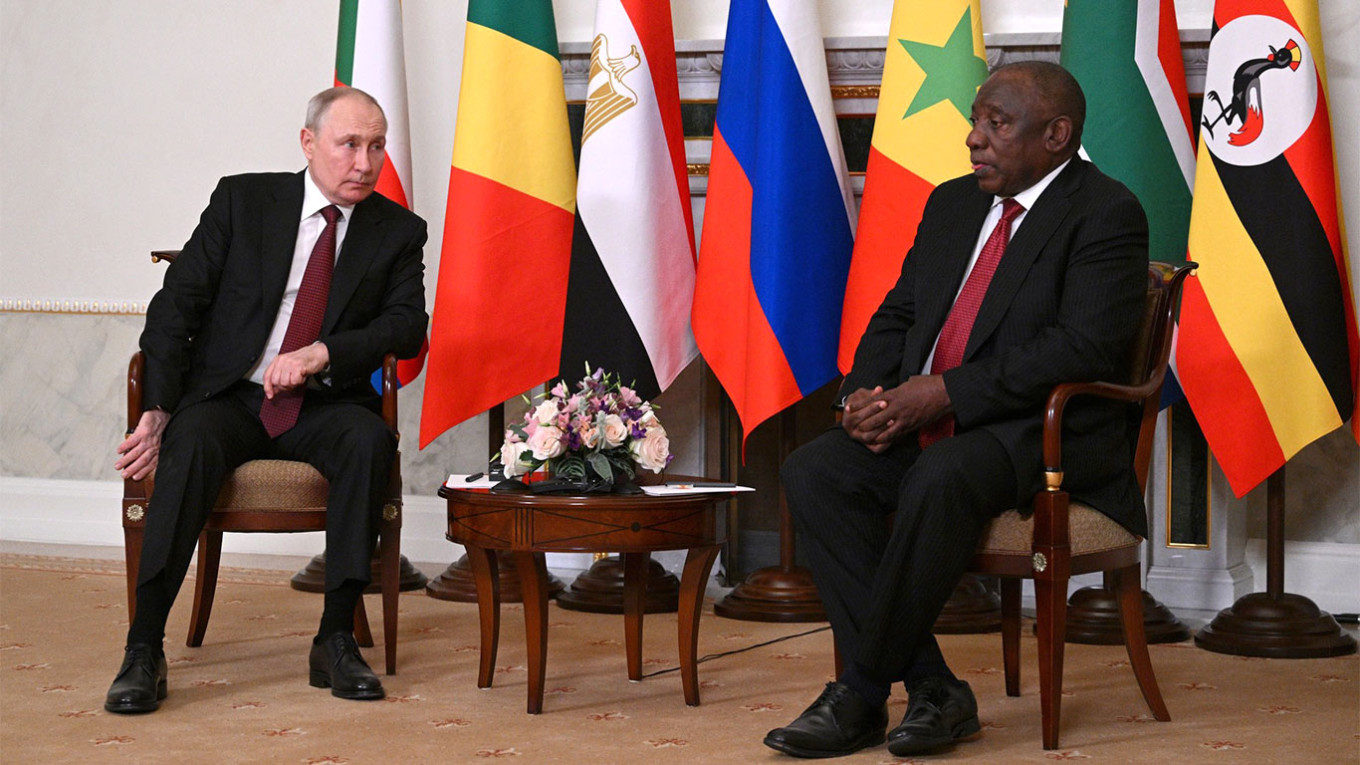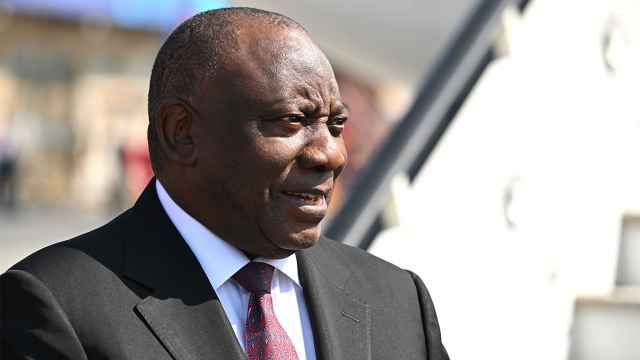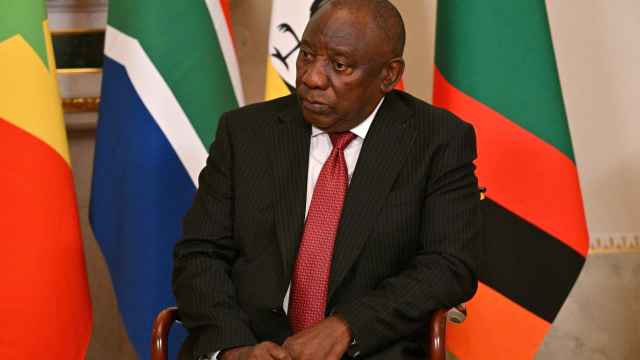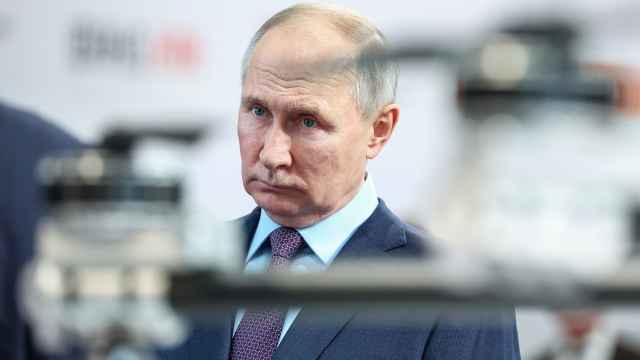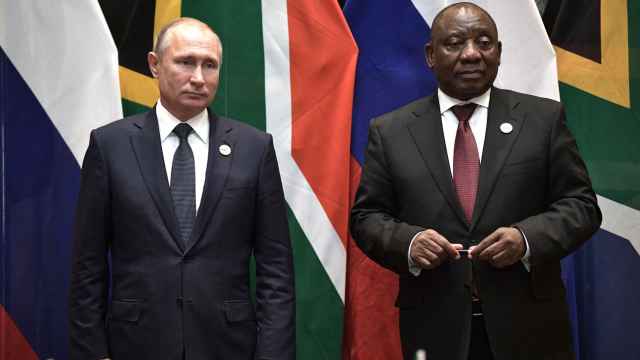President Vladimir Putin’s attendance at next month’s BRICS summit in South Africa is mired in uncertainty as the International Criminal Court (ICC) seeks his arrest and an aborted mercenary mutiny has shaken Russia’s domestic stability, three Russian officials as well as independent experts told The Moscow Times.
In what would be his first official trip abroad since The Hague-based court indicted him for the illegal deportations of Ukrainian children to Russia, Putin has accepted an invite to travel to Johannesburg for the annual BRICS summit.
But even if he is willing to risk arrest in order to project a confident, unbothered image at home and abroad, the Kremlin now fears a reprise of the Wagner mercenary group’s rebellion against Russia’s top military brass, which posed the biggest challenge yet to Putin’s 23-year rule.
As a result, officials said, the Kremlin has still not made a final decision on Putin’s attendance.
"The Kremlin and the Foreign Ministry are preparing two basic scenarios for Russia's participation in the BRICS summit. The first is with Putin. In the second, fears for internal and external security prevail: Putin stays in Moscow and speaks via video conference,” a Russian government official who spoke on condition of anonymity told The Moscow Times. “But a delegation of officials is heading to South Africa either way."
Officially, the Kremlin's pause in planning Putin’s visit that followed the surprise ICC warrant on March 17 is still in place.
"For now, we are considering various options, and after the president makes a decision, we will inform you," Putin's spokesman Dmitry Peskov said Tuesday.
The BRICS summit to be held in Johannesburg on Aug. 22-24 is a key event for Putin, as it fits with his strategy of seeking to display a formidable counterweight to Western hegemony.
And after Russia's full-scale invasion of Ukraine in February 2022 and the ensuing break with the West, Putin has simply had no alternative but to strengthen partnerships elsewhere.
However, due to the ICC warrant against Putin and Russian children’s rights commissioner Maria Lvova-Belova, all of Putin’s in-person international engagements have been frozen for several months.
Despite Russia's close ties to Turkey and the fact that Ankara has not signed the ICC’s Rome Statute, Putin had to cancel a trip to Turkey in April to attend a ceremony at a Russian-built nuclear power plant, even though his participation had already been announced by President Erdogan.
As a signatory to the Rome Statute, South Africa is obliged to arrest Putin if he travels there, a fact stated by some South African officials. However, South African President Cyril Ramaphosa has been trying for months to find a possible workaround.
It would not be unprecedented for South Africa to refrain from arresting an individual wanted by the ICC. In 2015, Sudanese President Omar Bashir traveled to Johannesburg for the African Union summit without incident.
The issue of security guarantees for Putin in South Africa was discussed during Ramaphosa’s visit to St. Petersburg in June, an official close to the Kremlin who asked to remain anonymous told The Moscow Times.
“The subject of a possible arrest was discussed at the official level and security guarantees were given,” the official said.
But because Wagner Group leader Yevgeny Prigozhin’s mutiny later that month created another risk factor for Putin, the final decision to travel to South Africa was again postponed.
"To take the ICC warrant for the chief [Putin] into account would be simply insulting. But here, the Wagner campaign created a problem and fear of the possibility of a coup. Now everyone is under the radar of the FSB, the presumption of innocence doesn't work," a Russian official who previously served in the special services told The Moscow Times.
Putin has in recent years been kept away from international events where he might be presented with unpleasant truths. And with the leaders of countries like India and China unafraid to express their opinions on the war in Ukraine, this could be another reason for Putin to skip the forum, Maxim Samorukov, a researcher at the Carnegie Center for Russia and Eurasia Studies, told The Moscow Times.
"In the last years before the Covid pandemic, meetings with foreign leaders were a kind of reality check for Putin,” Samorukov said.
“He heard from them that things are not as rosy as he thinks and as his aides write in their reports. If the Russian president does not decide to go, it will lead to further isolation from reality."
A Message from The Moscow Times:
Dear readers,
We are facing unprecedented challenges. Russia's Prosecutor General's Office has designated The Moscow Times as an "undesirable" organization, criminalizing our work and putting our staff at risk of prosecution. This follows our earlier unjust labeling as a "foreign agent."
These actions are direct attempts to silence independent journalism in Russia. The authorities claim our work "discredits the decisions of the Russian leadership." We see things differently: we strive to provide accurate, unbiased reporting on Russia.
We, the journalists of The Moscow Times, refuse to be silenced. But to continue our work, we need your help.
Your support, no matter how small, makes a world of difference. If you can, please support us monthly starting from just $2. It's quick to set up, and every contribution makes a significant impact.
By supporting The Moscow Times, you're defending open, independent journalism in the face of repression. Thank you for standing with us.
Remind me later.



